Hello to you all—my wonderful supportive (and understanding!!) Wandering Journo Tribe!
Thanks for continuing to support me through my full on amazing podcast production and arts writing year!
This episode of Streets of Your Town is a story of hope and reconciliation through science.
The Dingaal and Ngurrumungu people of Far North Queensland have known for thousands upon thousands of years how their people have journeyed far across the Coral Sea, and now finally, that First Nation’s knowledge is being more widely recognised.

The Queensland Museum exhibition, Connections across the Coral Sea—A Story of Movement, brings together First Nation's knowledge with archaeological research, showcasing for the first time a part of Queensland history that has not been previously acknowledged.
It shows how extensive international trade and relationships between ancient seafaring cultures of Southern New Guinea, Torres Strait and the north-east coast of Queensland went back thousands of years, much further than science traditionally gave credence to.
Rare Lapita pottery, from an ancient midden on Jiigurru (Lizard Island), is on display, along with a large outrigger canoe that is not simply a functional vessel for travelling across vast oceans, but also a beautiful piece of art that has a life of its own.
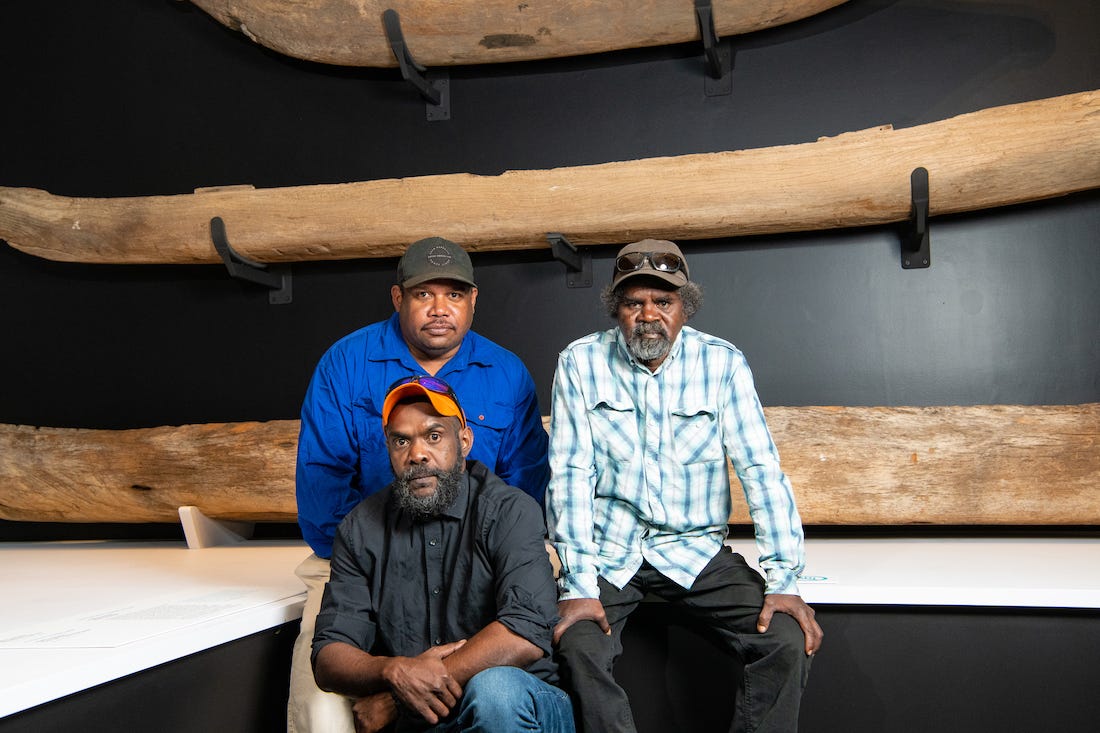
I spoke to Jiigurru Traditional Owner and Dingaal spokesman, Kenneth McLean, whose expertise was pivotal in bringing this exhibition together.
“Yes, it’s been a great outcome for the First Nations people, Traditional Owners of our country and also, the archeological science. It’s been a great outcome,” Kenneth says.
“Our Elders would talk about our ceremonies and law that our all people would have on Country and have that connection across country and across the water and for the scientific community and for the research to find this evidence there and put that together. Here we have that our Indigenous people weren’t isolated on this continent.”
He explains how significant it is to have their extensive history given this platform.
“For the Indigenous communities of Cape York and the Torres Strait Islander communities, the cultural significance that we value is a part of this ancient history that must be told,” he says.
“The significant culture that we value... It’s the story, it’s the law of the land, and with the law of the land and the sea, that becomes a history that’s as ancient as it is.”

I also spoke to one of the key archaeologists involved in this research, Professor of Indigenous Archaeology, Ian McNiven from Monash University.
He says the Queensland Museum exhibition is a pivotal development in science, finally respecting the oral history of this region that has been handed down over hundreds of generations.
“We’re about telling stories of Australia’s fascinating Indigenous past,” Professor McNiven says. “The only way that can be done is when researchers like myself collaborate and partner with Indigenous communities, and that’s where the real stories come through.
“I can tell part of the story, I’ve got a few pieces of the jigsaw, but all the bulk of those pieces and the bulk of that information comes from working with communities. Together, we bring out these extraordinary stories of Australia’s past, which, and in fact, that’s what’s happening with the Coral Sea. These are stories we didn’t know existed until a few years ago.”
He said it’s a pivotal change in attitude from the scientific community, and needs to continue for decades to come.
“Archaeology in the past, and I think for the right reasons, developed a bad reputation. It was operating by itself, in the sense that it came out of the 19th century, and it was still tainted by that colonial mentality.
“The traditional academic view was that Indigenous Australians were quite an isolated place in the world and there wasn’t a lot of connection outside of Australia. We now know that in a nutshell, that’s rubbish.
“This is about the amazing interactions that took place between North Queensland communities going through Torres Strait, but also into Southern Papua New Guinea. What we've found archaeologically, really is the hard evidence of that. It’s the pottery that’s telling us that story.”
Professor McNiven says it’s refreshing to see his profession move on from the patronising view it traditionally held of the contribution of Australia’s First Peoples.
“Patronising, but also just in terms of academic work, it was wrong,” he says.
“We had the wrong interpretation on this. See, this is also what happens when you work closely with the Indigenous communities. You realise a lot of what’s been said in the past is in fact, wrong or even worse, it’s quite misleading. It’s sending the wrong message to people. Now we are working closely with communities, the right messages are coming through for everybody to enjoy.
“Unfortunately, colonial science was very productive, so they produced a lot of ideas that need overturning. We have decades of work to do, to overturn these ideas. There’s no shortage of work to be done.”

In other news
It’s been a ridiculously busy time my Wandering Journo peeps! I can only apologise that I haven’t got my Streets of Your Town podcast through to you as regularly as I had hoped this year, and have had to take a break for the last six weeks or so to concentrate on my other big projects. I’ve been producing two separate podcasts—one for the Women in Technology group to celebrate its 25th anniversary, and another bringing together Indigenous Water Stories from around Australia. They’re both nearly finished production wise—so I’m hopeful that I can send you the links to these in this newsletter soon once they’re released and out in the world! There’s more than five hours of fully edited high end audio quality production to listen to—so will try not to bombard you all at once!
I really appreciate your support through this time. I’ve also been continuing my role as Arts Writer for In Queensland and have written on average two stories a week for this incredible independent publication throughout the Brisbane Festival. It’s been a wonderful opportunity to stretch my artistic wings and support an industry that was hit so hard during Covid—a big passion of mine since I did speech and drama (or as some call it—Screech and Trauma!) through my youth (thanks Mum and Dad!).
Here are a few links to some of my favourite stories—the first one on Queensland Theatre’s Othello which continues the theme of this newsletter bringing to light unrecognised history from the Torres Strait Islands—and this production of Othello did that in such a fascinating way. It was an incredible show. And considering half the poor cast caught Covid—we’re lucky it came to the stage at all! I saw it the first night after a week long Covid induced break mid-season—and if they hadn’t have told us we would not have known—the actors had so much energy it nearly blew us out of our seats. The actors in this country are simply phenomenal.
Read: Where art and real life intersect: Othello brings surprising Queensland twist
Read: As one door closes, another opens: QSO farewells one leader, welcomes two more
Read: Opera aims to ignite festival with power of two, singing as one
Read: Take a good, hard look at yourself, says the man who wrote the book on it
And here’s some unexpected news that took me by pleasant surprise this week! I was presented with an award by my old school Somerville House—recognising my life’s achievements in journalism. Was wonderful to be acknowledged for my life’s work!
If you’re so inclined you can watch the introduction to my acceptance speech by the Somerville Principal or watch my speech in full (it’s not long—promise!)
Watch: Introduction to my award
Watch: My acceptance speech
Thanks so much for your ongoing support!
Talk soon my Wandering Journo tribe!
xx Nance



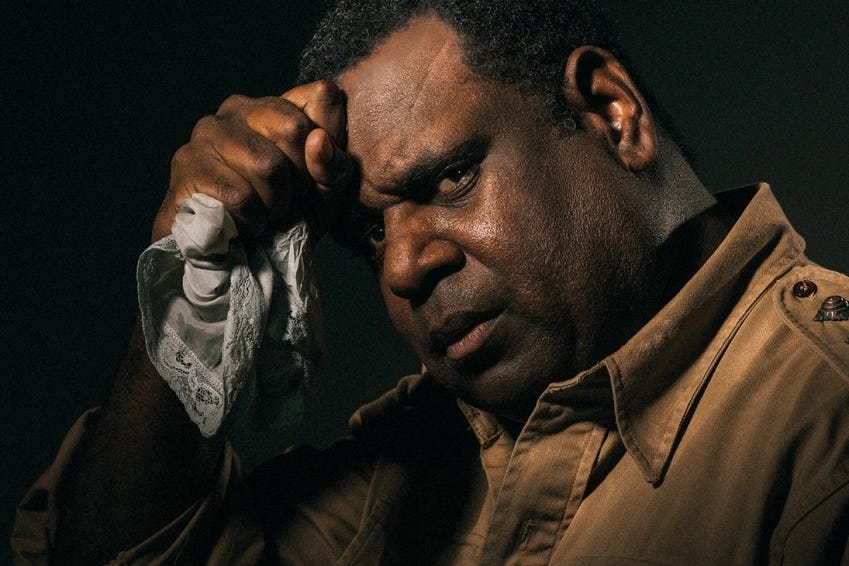




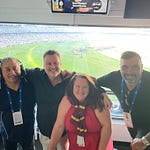
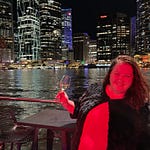
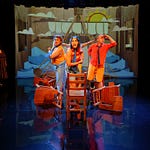
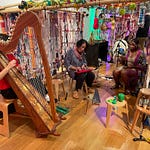


Share this post